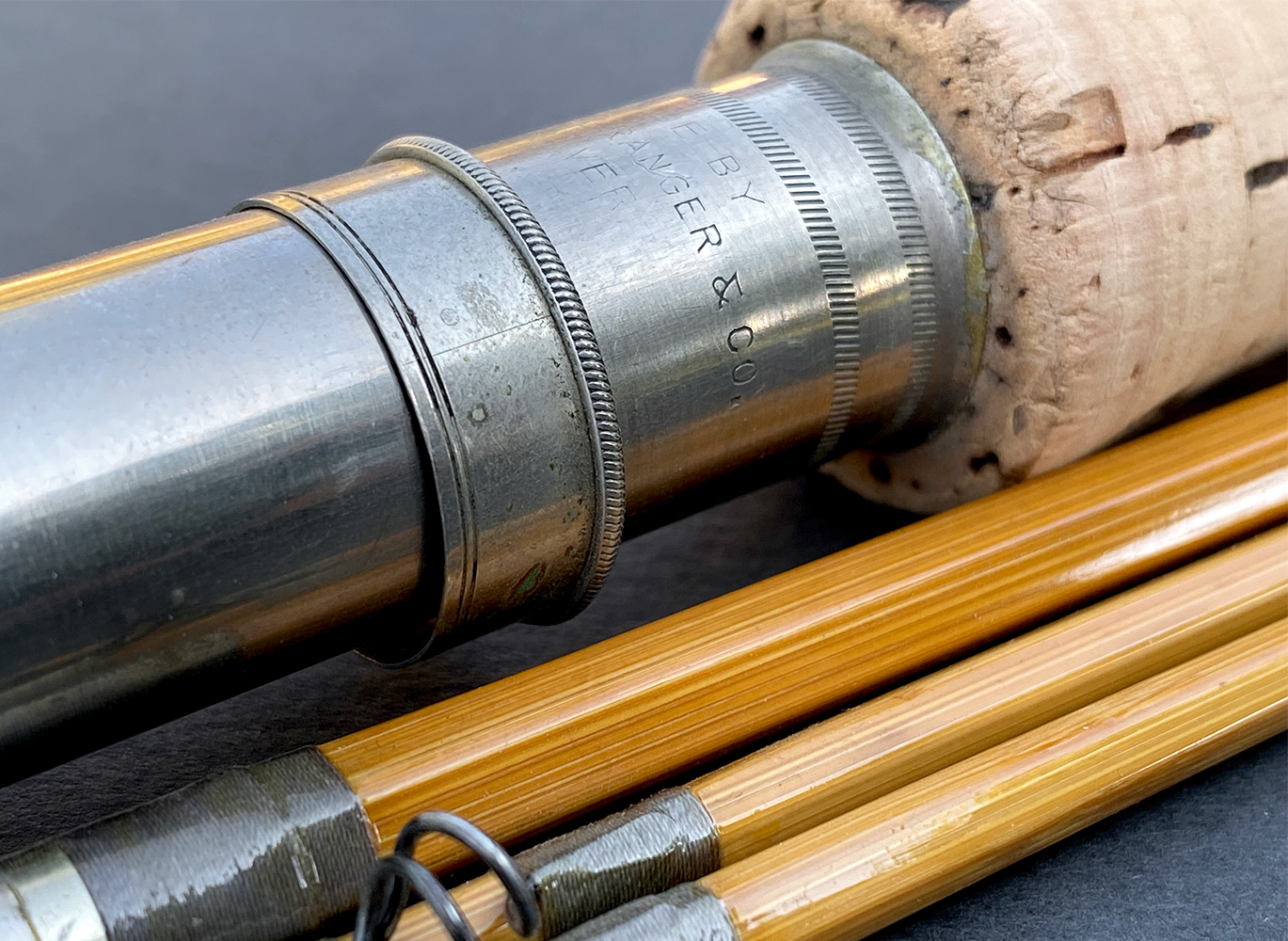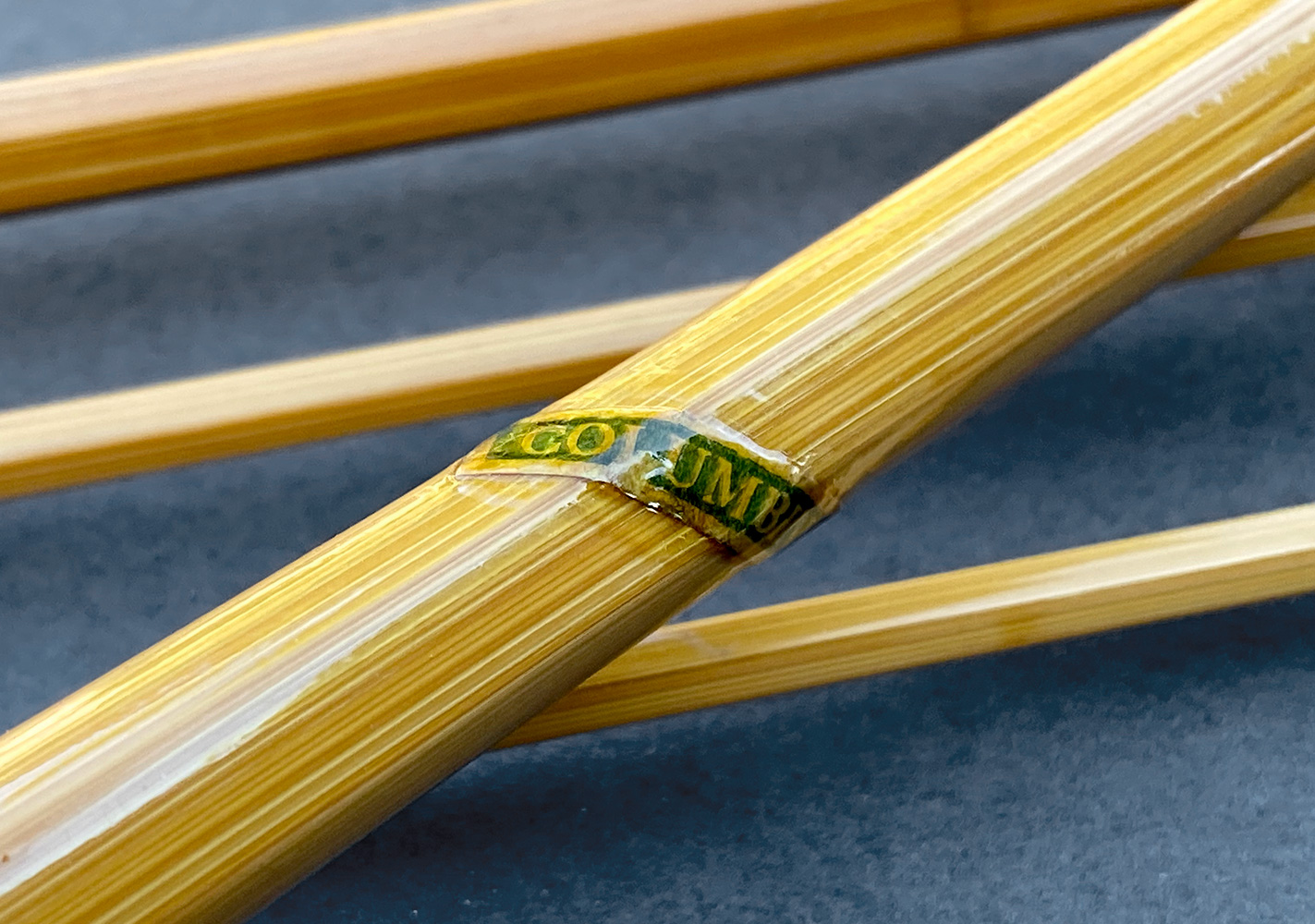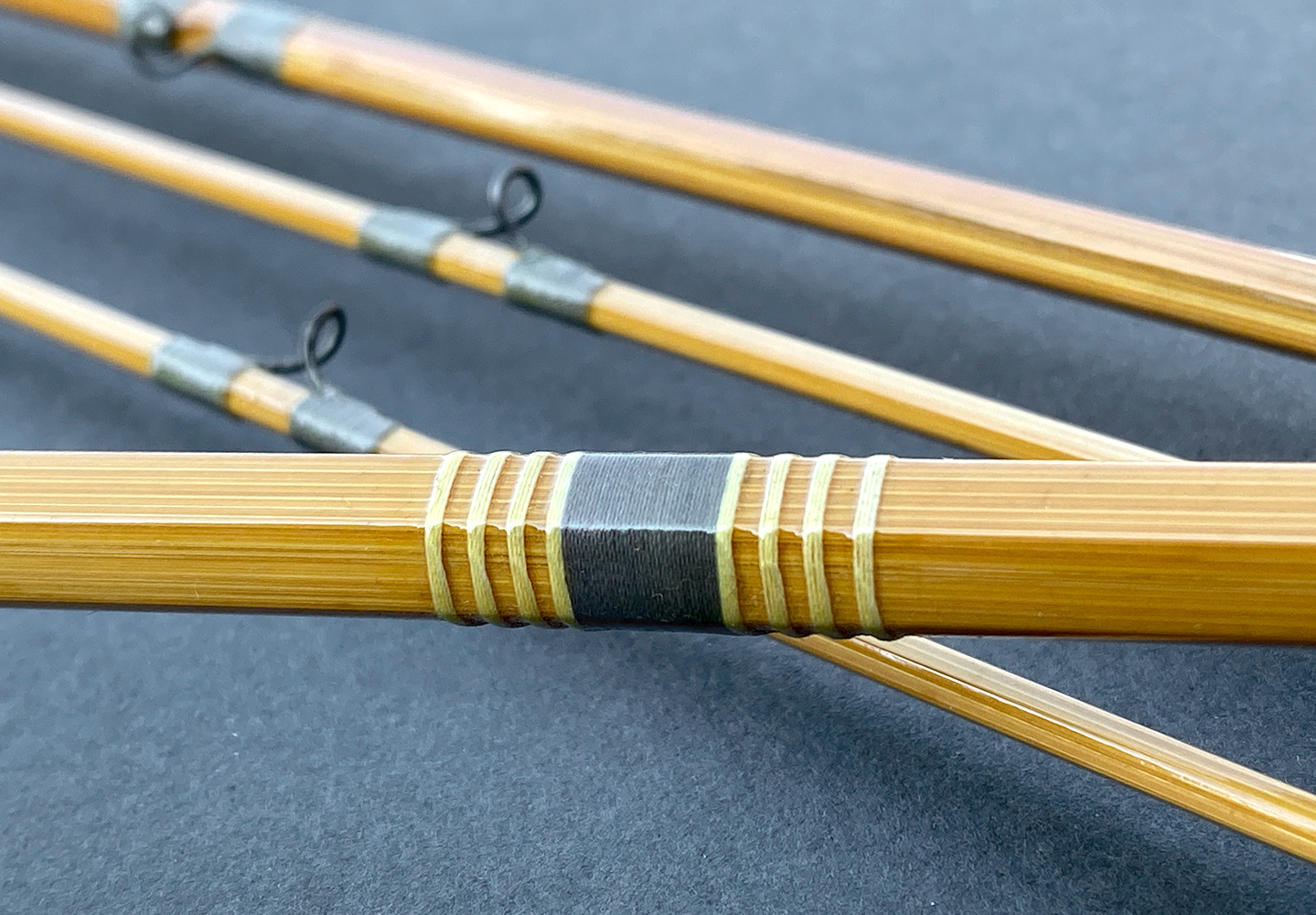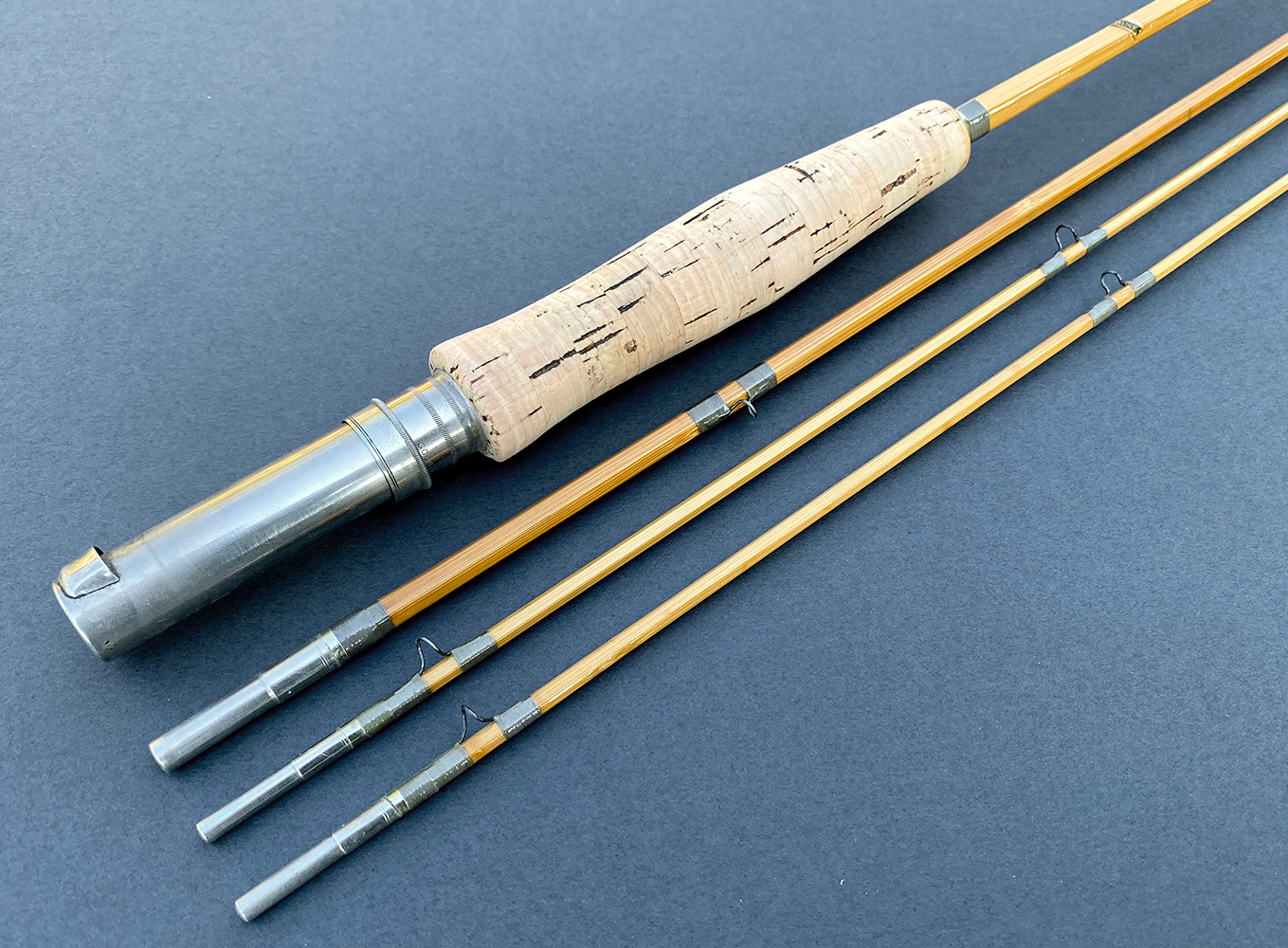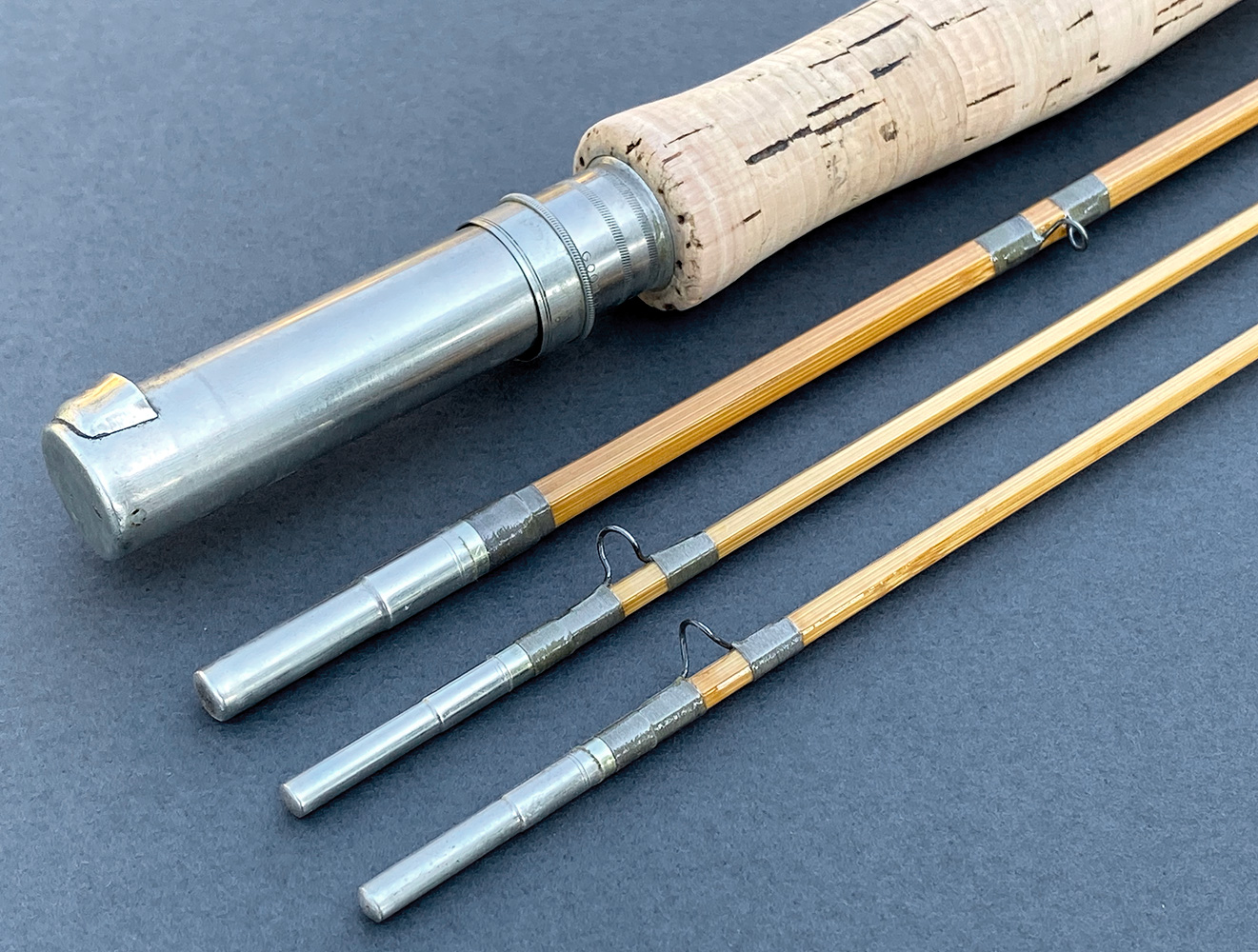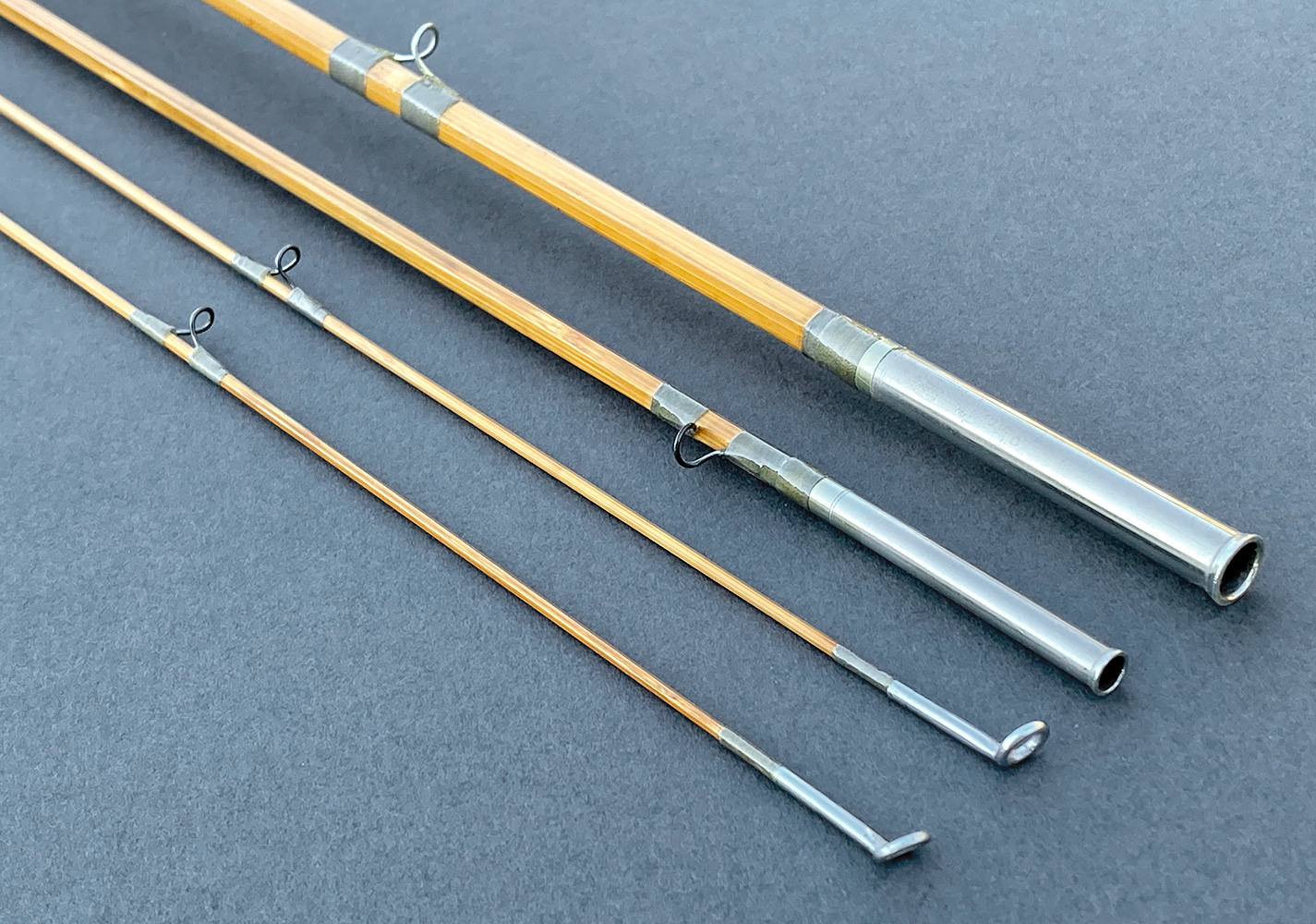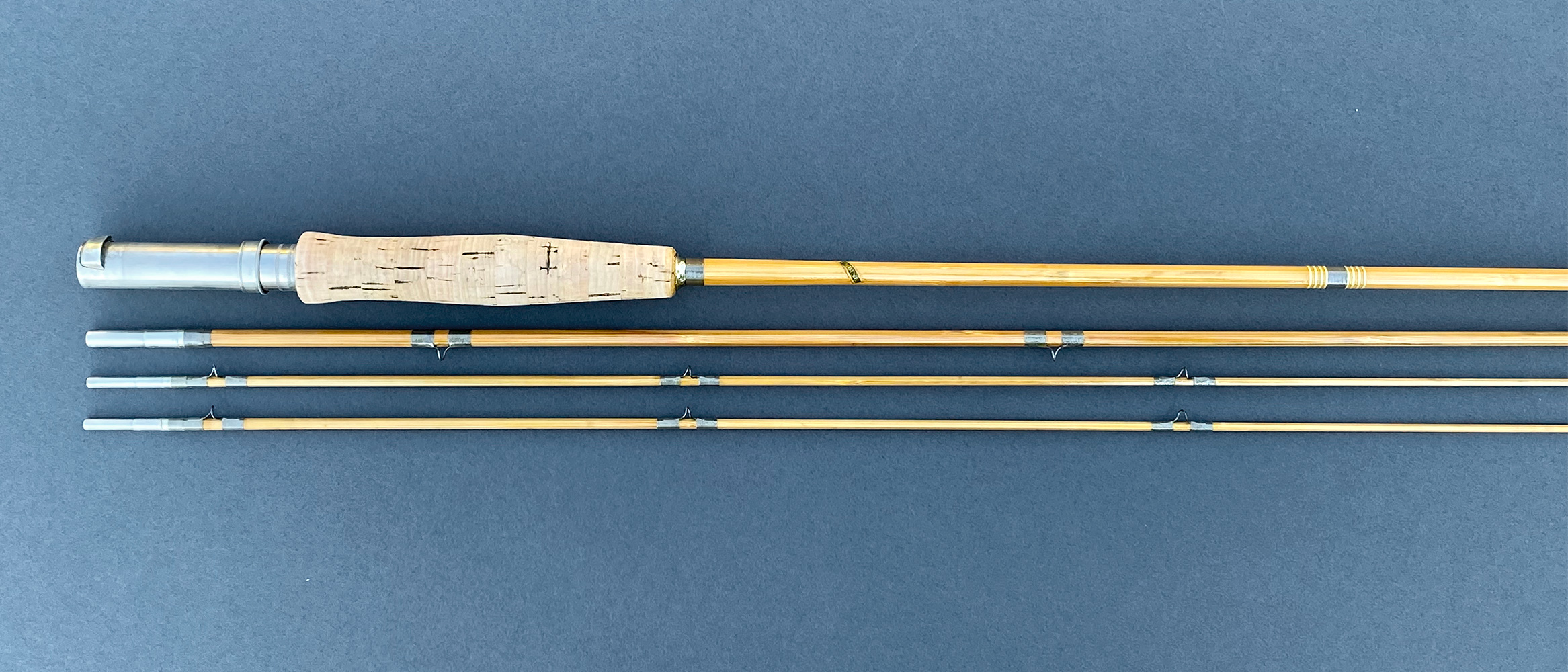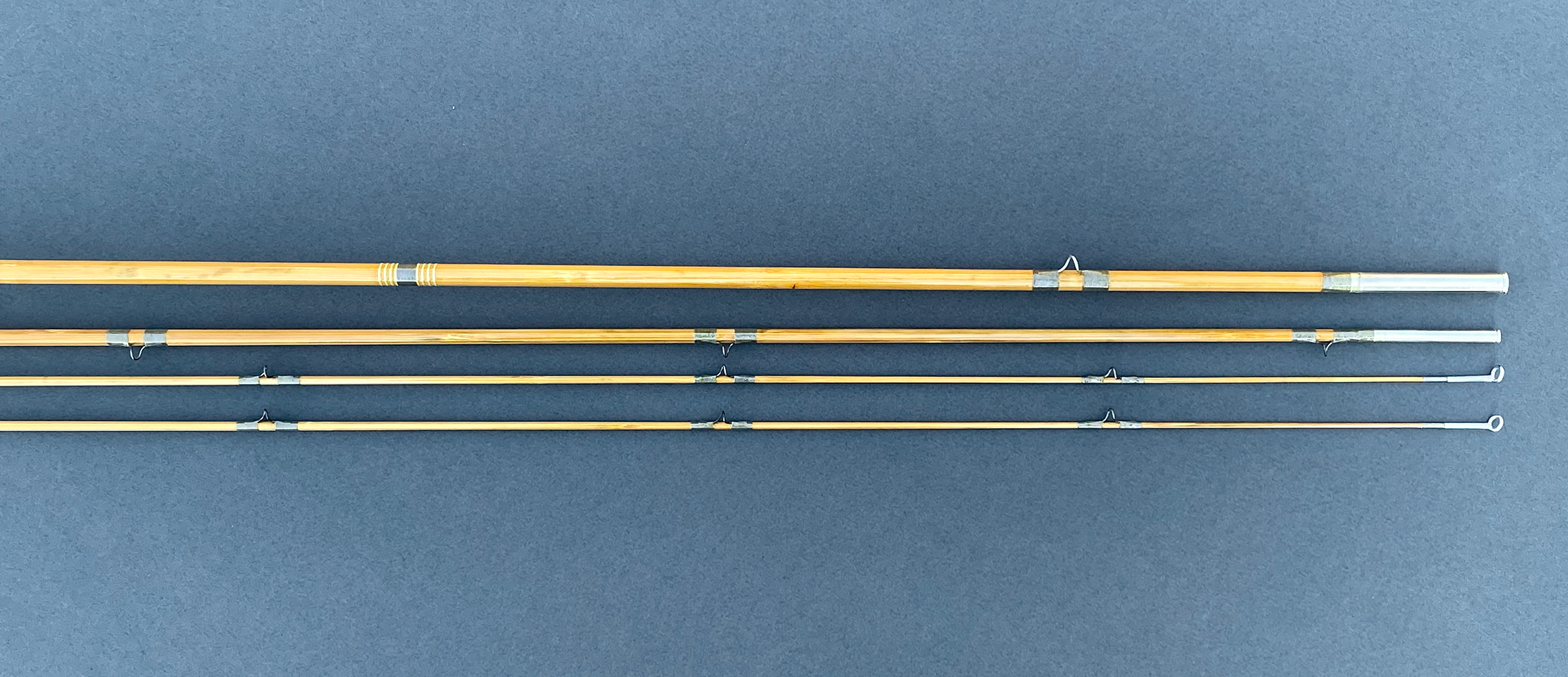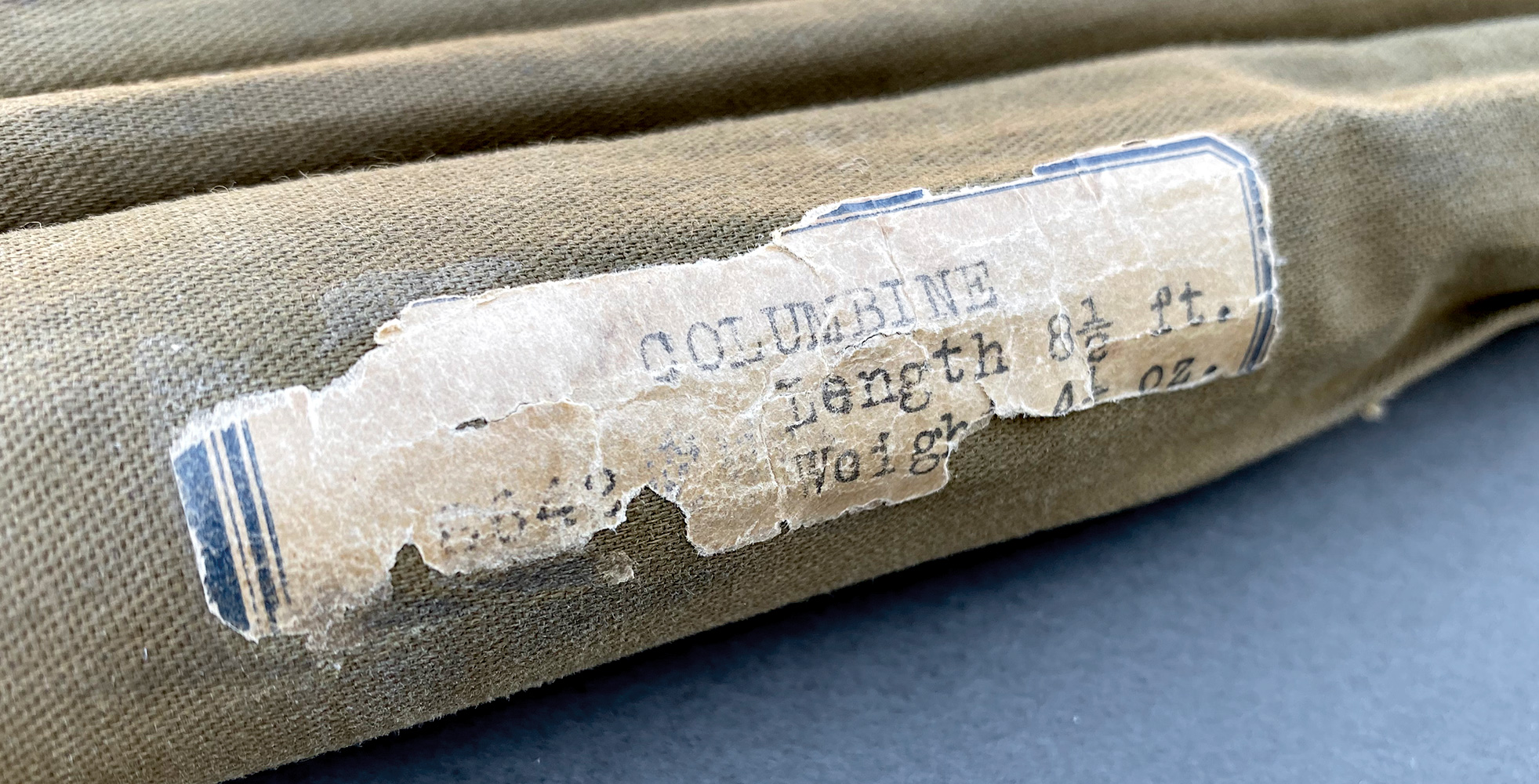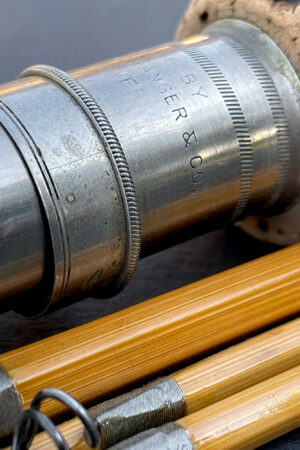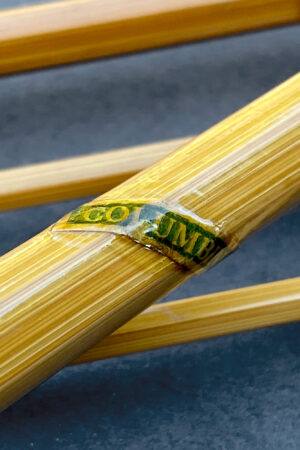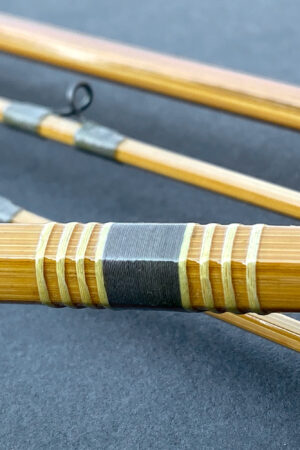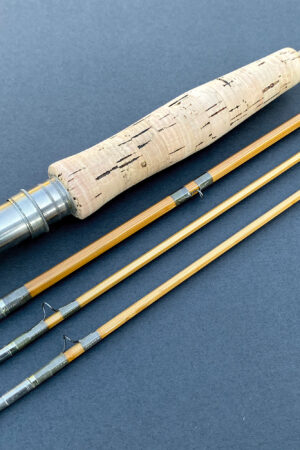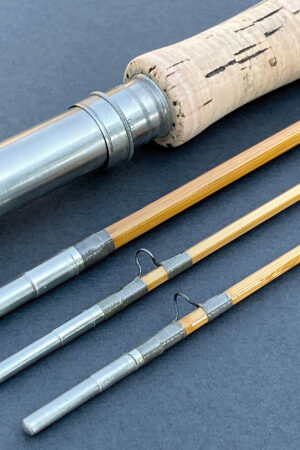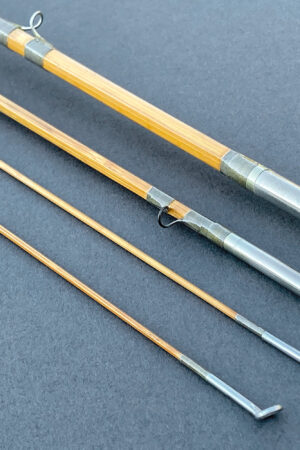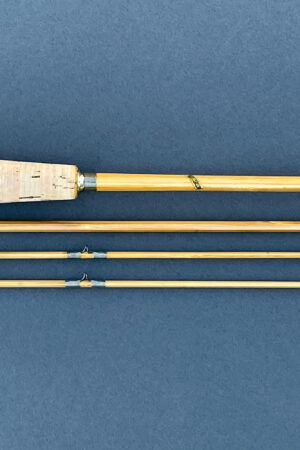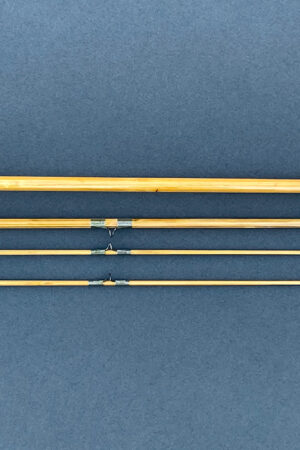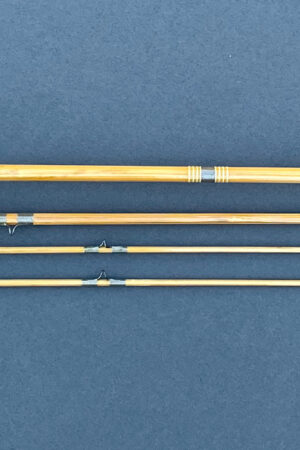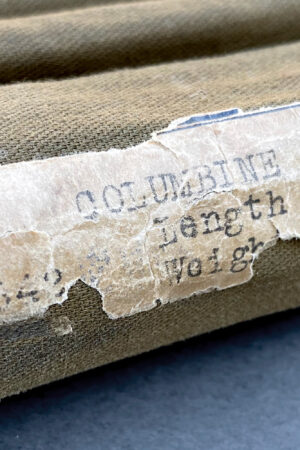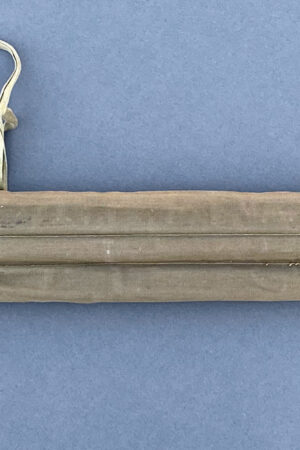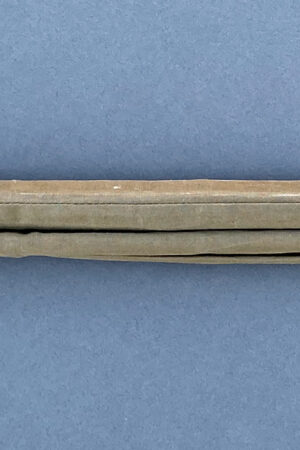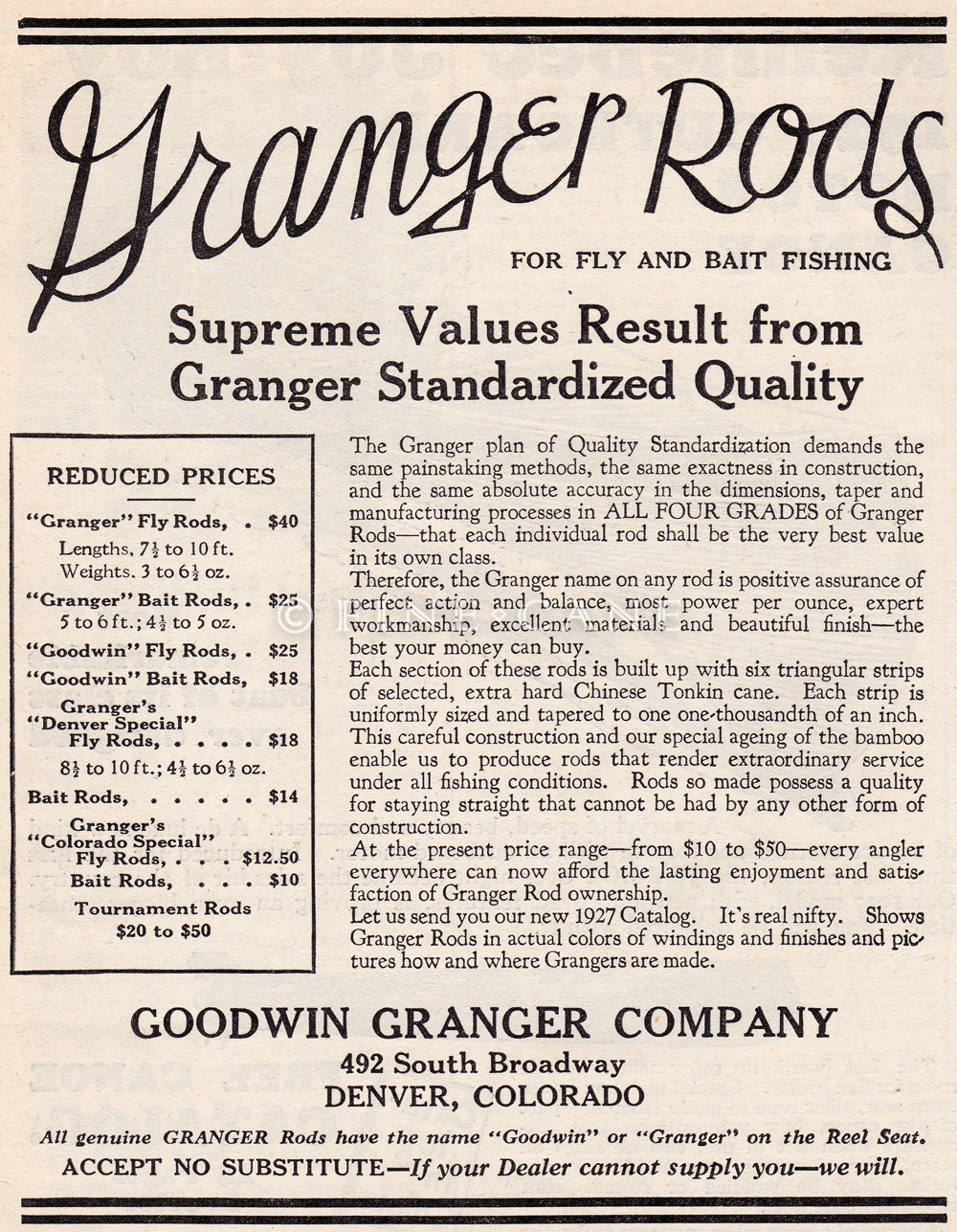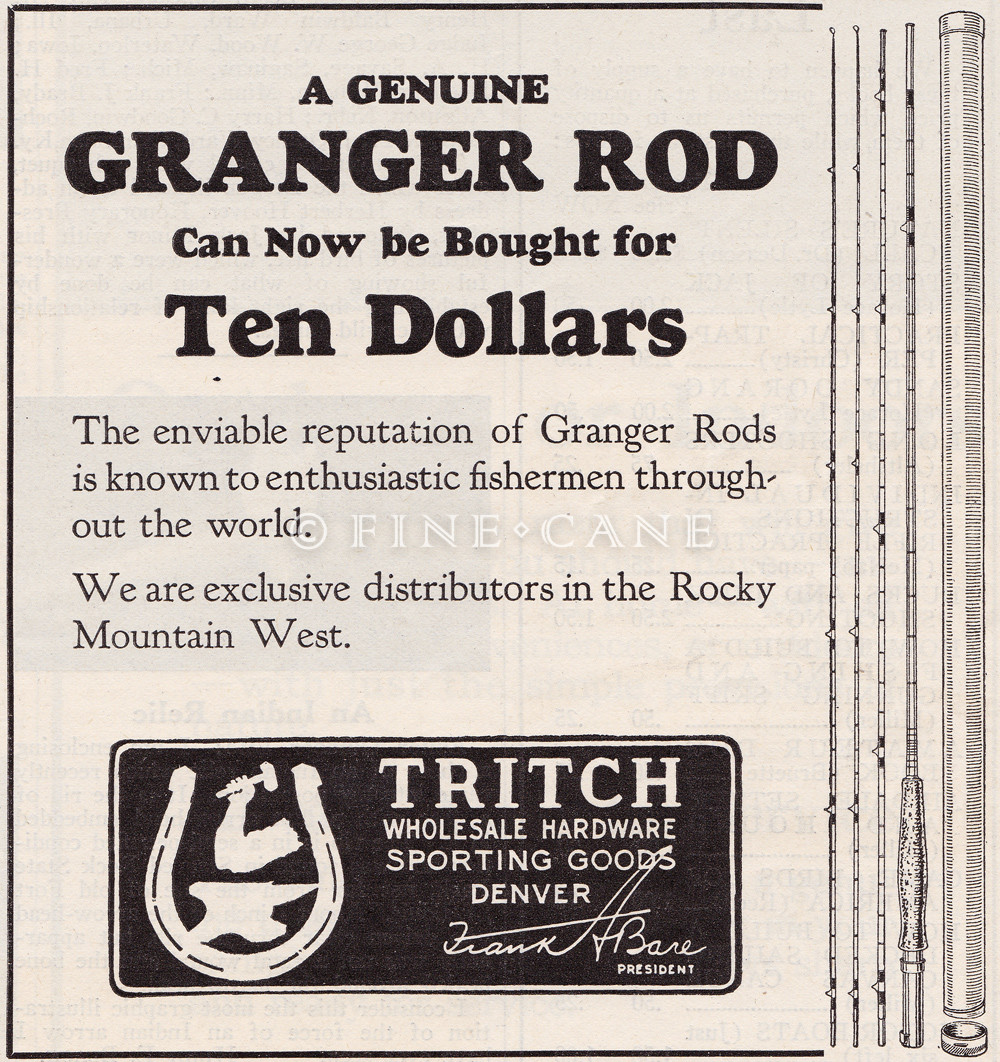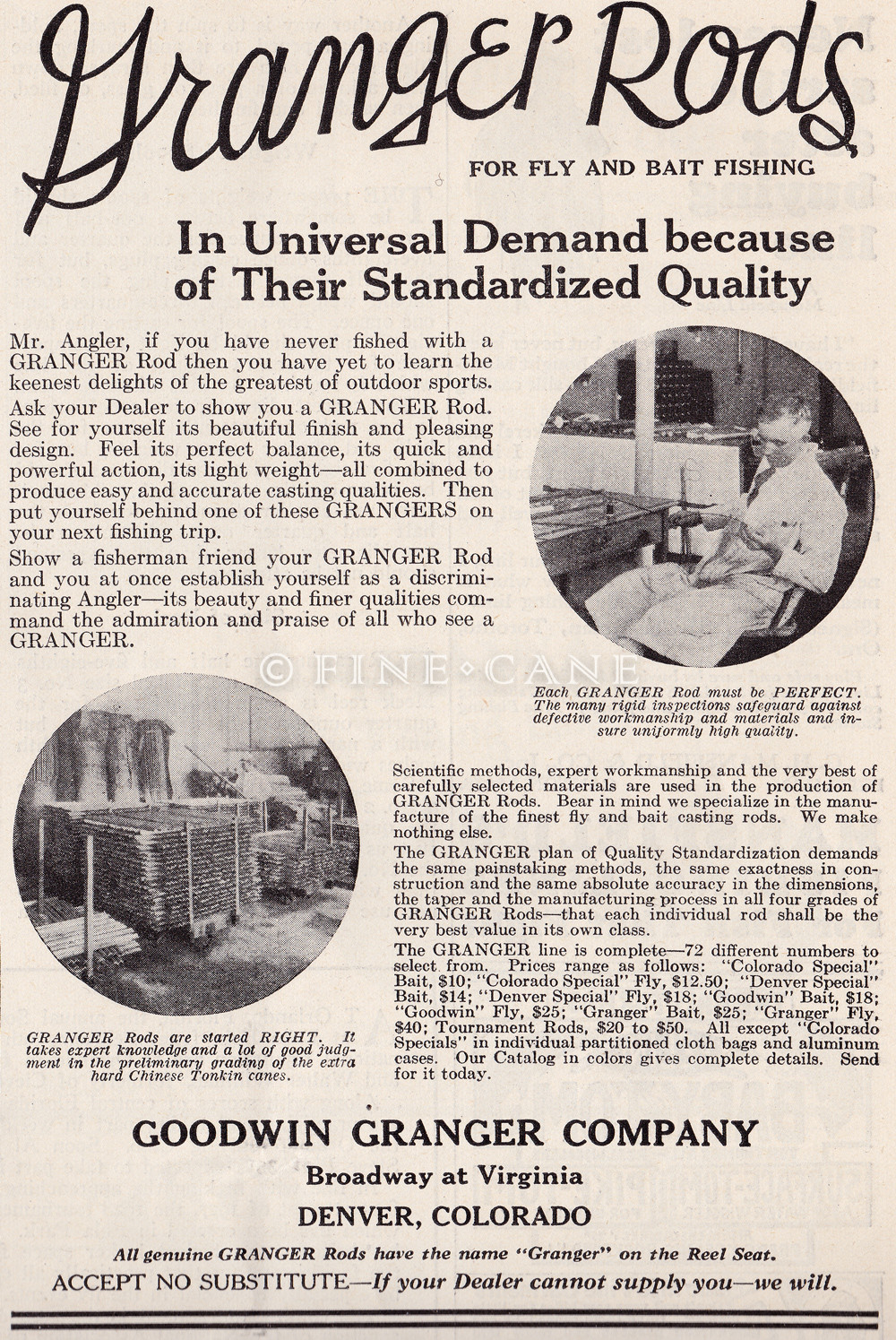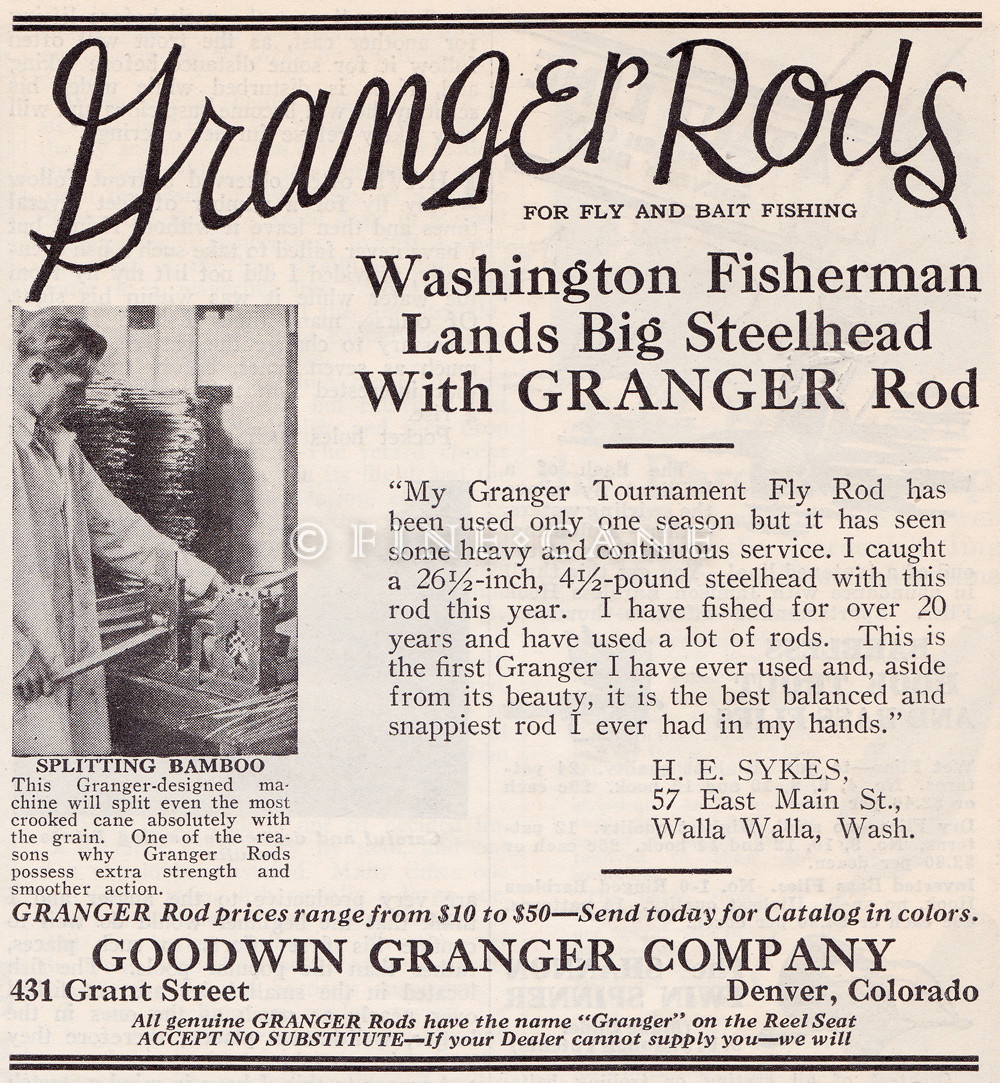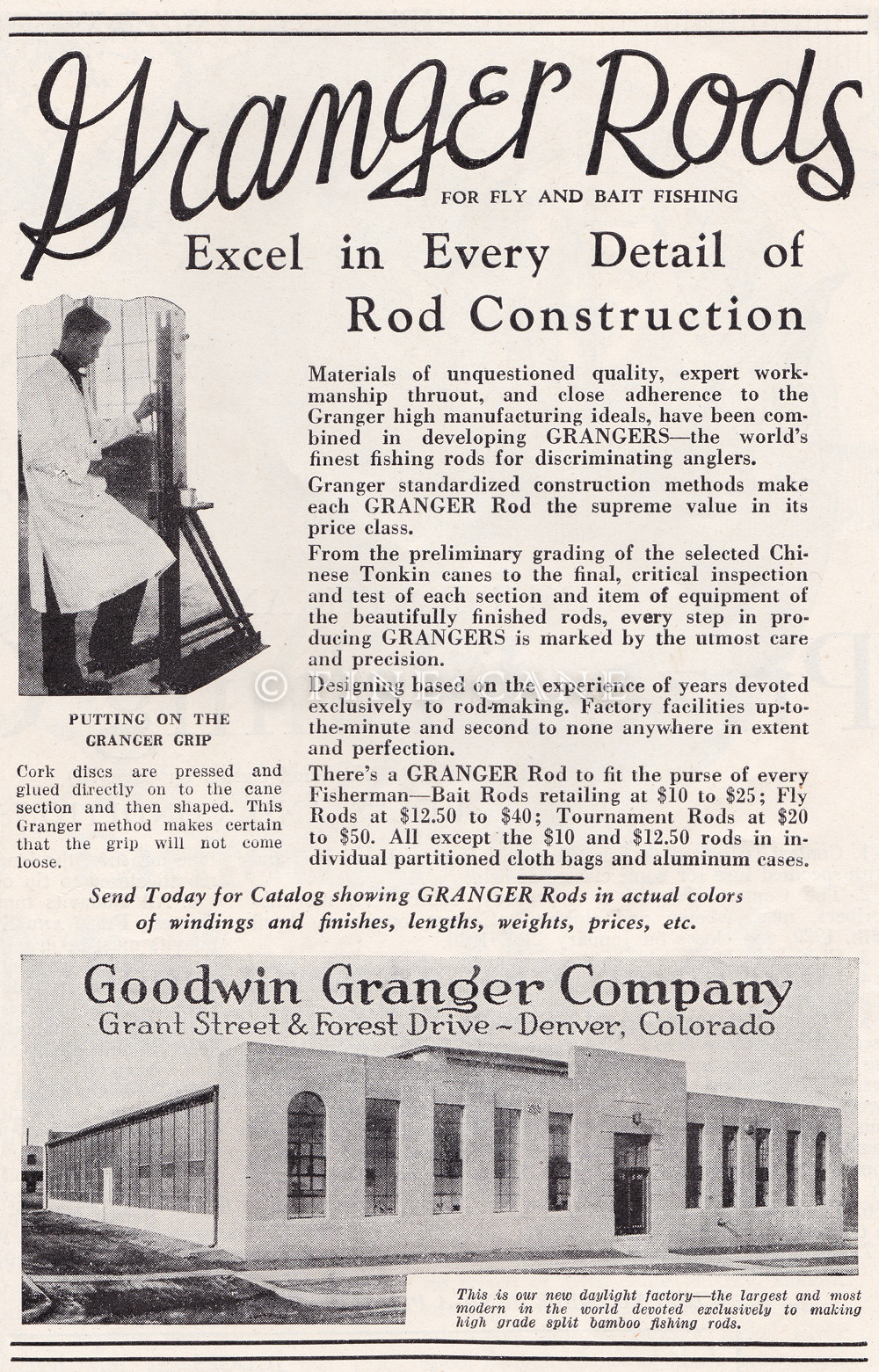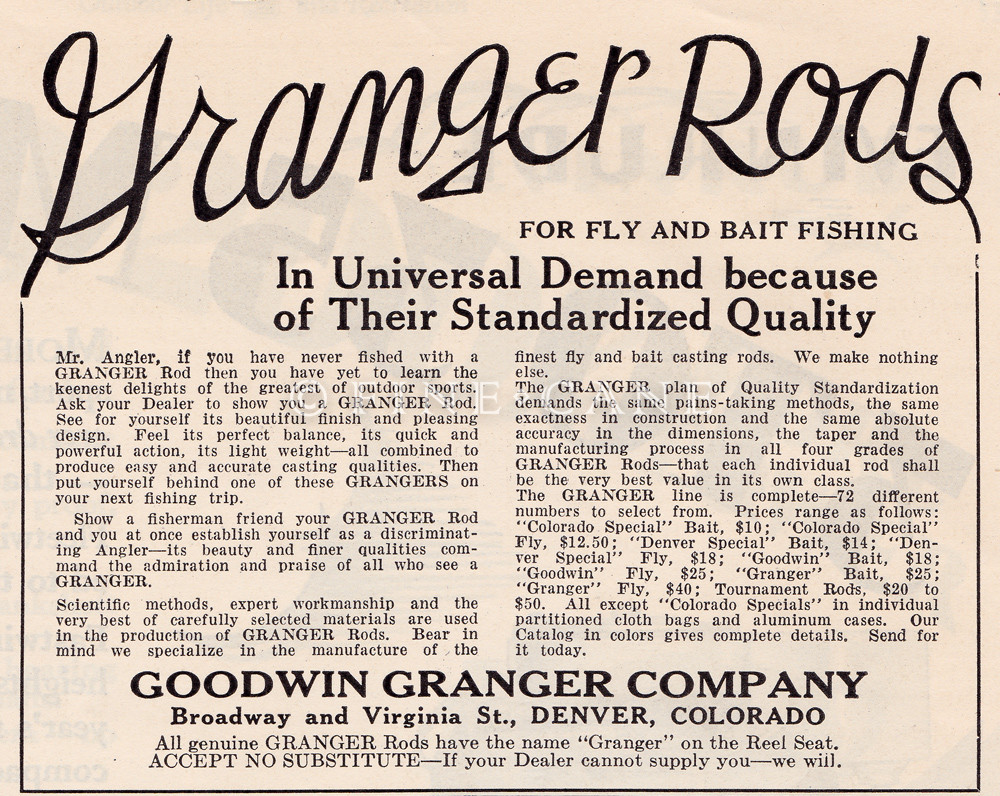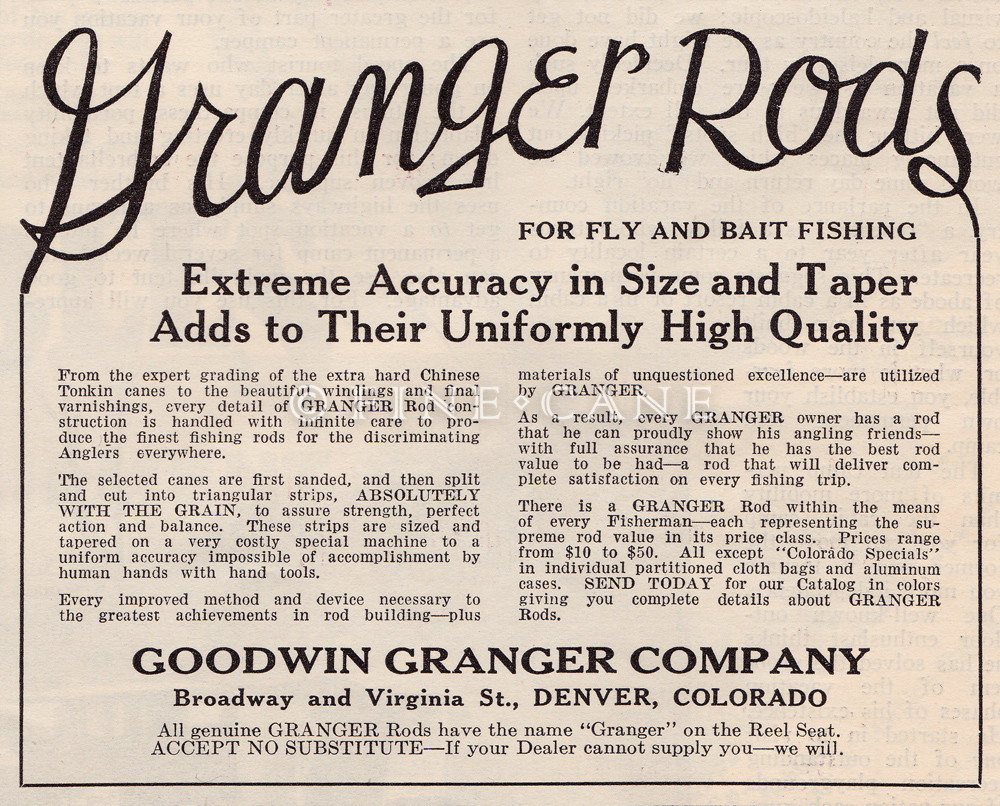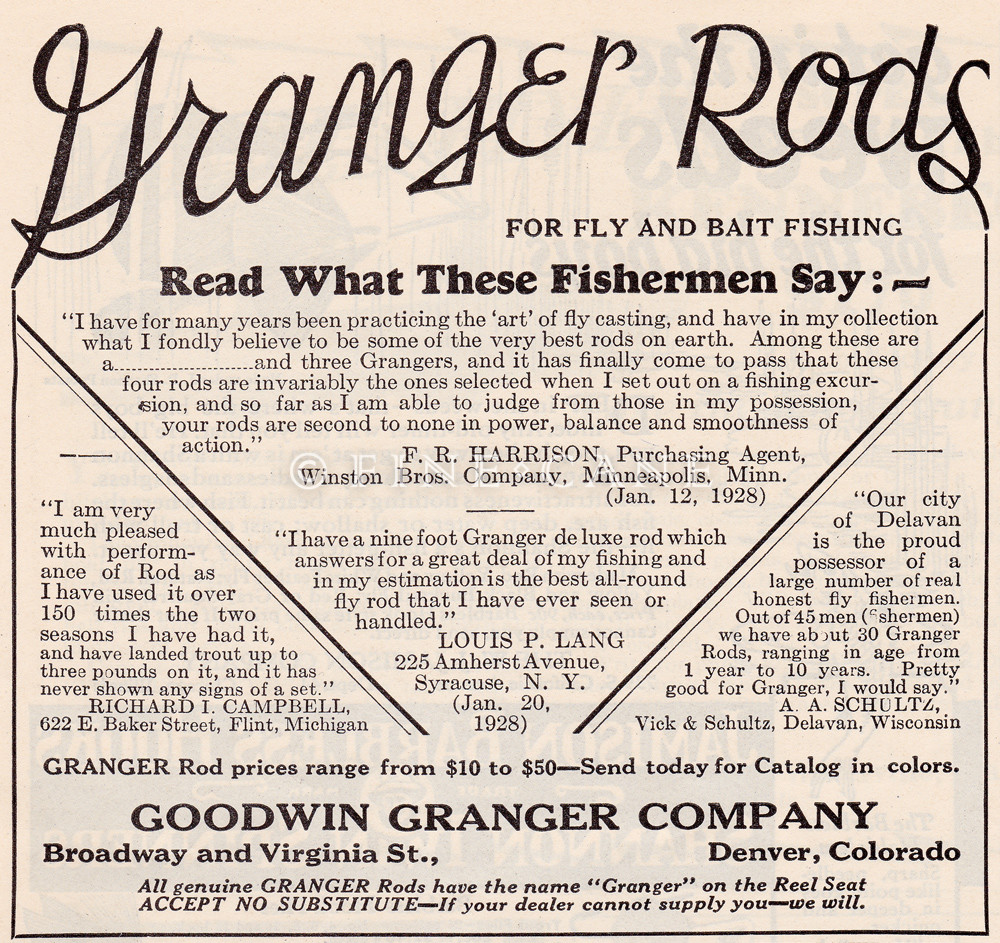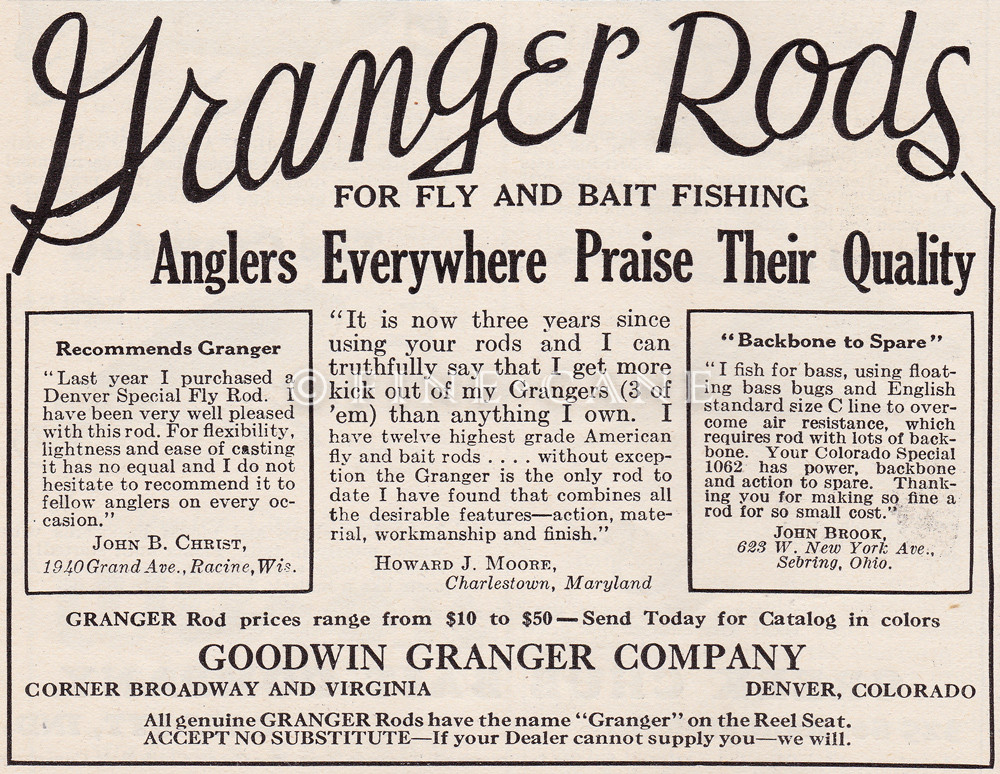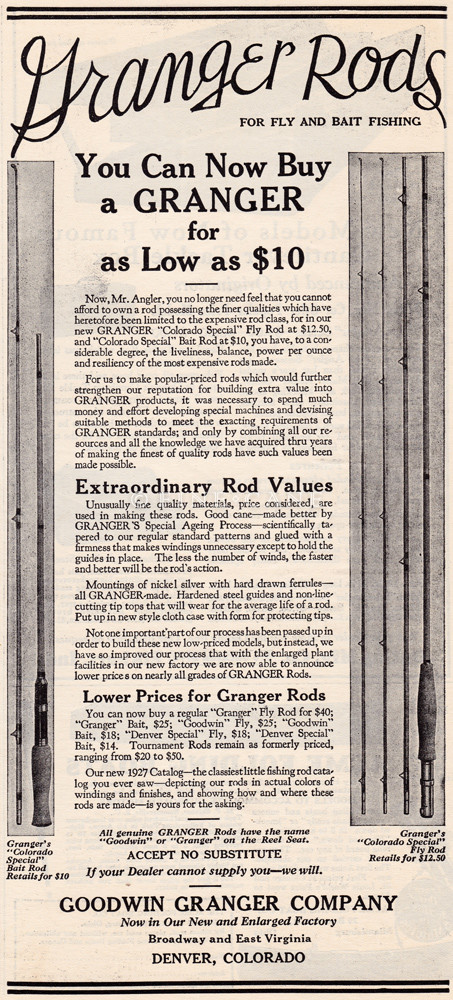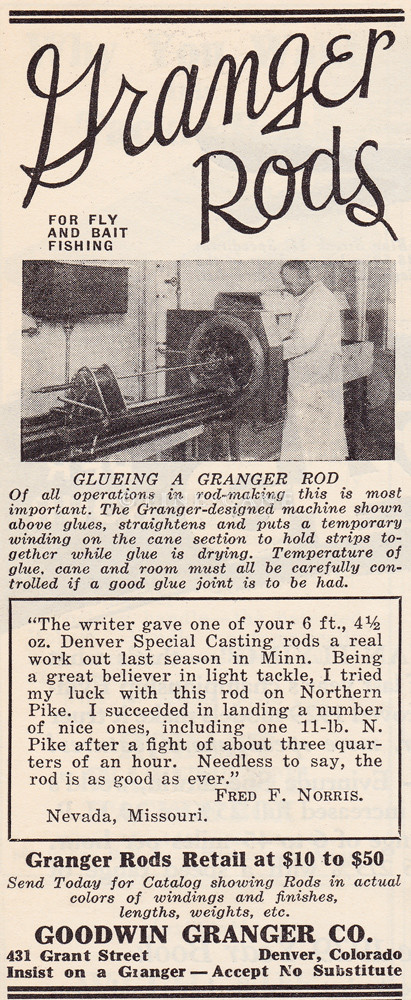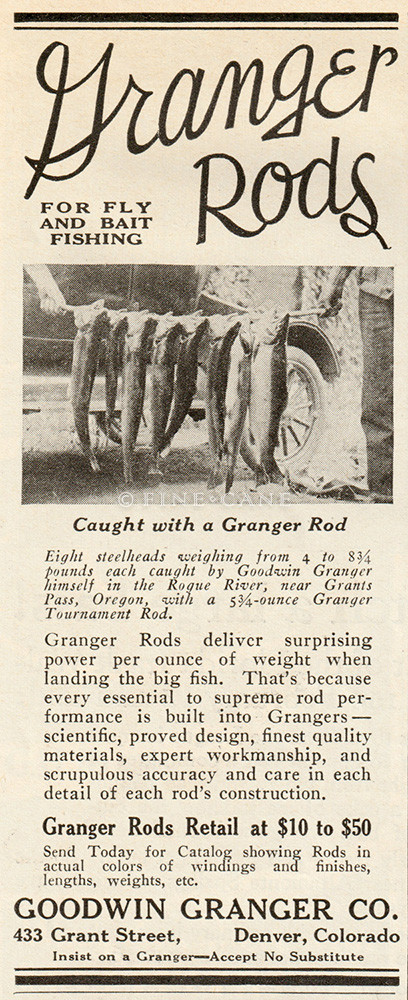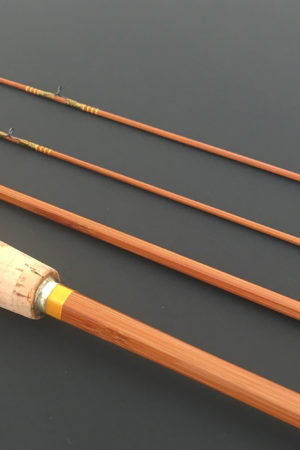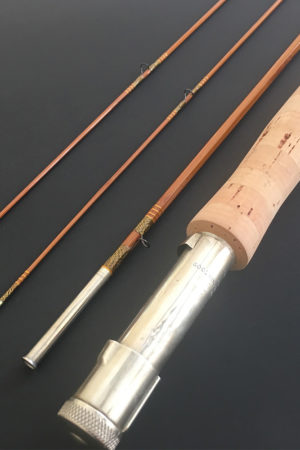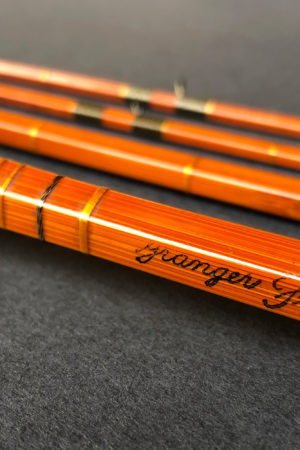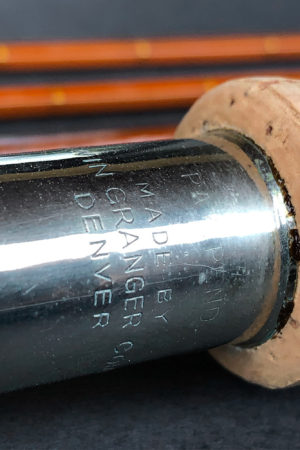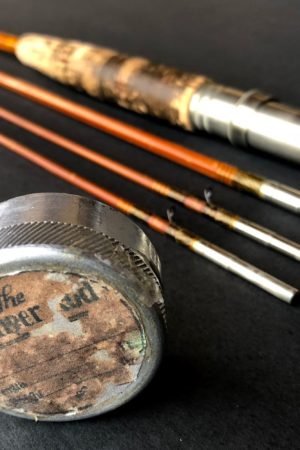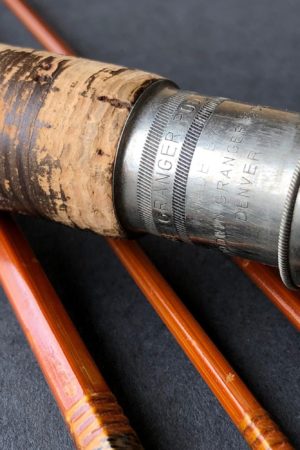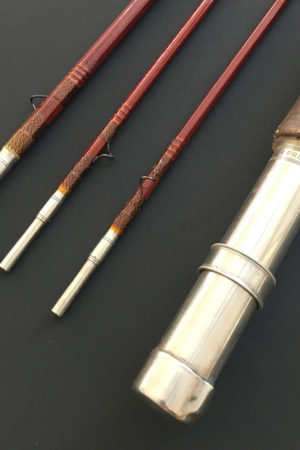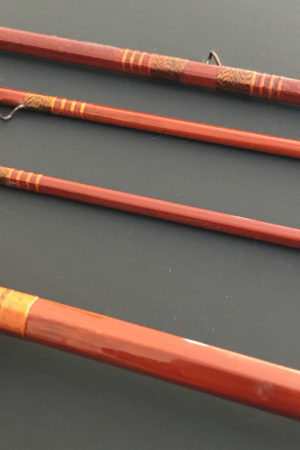Description
At the close of the 3rd Era, Goodwin Granger began the transition away from light-colored “White Granger” rods to 100% ammonia-treated rods. The Denver Special and Colorado Special were the 2 remaining light-colored grades and it is believed (according to Michael Sinclair’s book, Goodwin Granger, The Rod Man From Denver – p.197) that the remaining inventory was sold to suppliers in the Denver area and marketed under different names.
The “Columbine” trade rods closely resemble the Colorado Special in wrap pattern, however the main wrap color is olive-gray instead of red. Also unique is the use of a “COLUMBINE” decal on the butt section instead of a Granger stamp.
This rare example of a Goodwin Granger Columbine 8642 from the late 1920’s is in Excellent+ Restored condition. Complete restoration executed flawlessly by Scott Whitman. Wraps are olive-gray silk with pale gold accents on signature wrap. Original Coke Bottle grip has been cleaned. The original sliding band nickel silver reel seat with no markings between the two incised bands at the top and “Made By / Goodwin Granger & Co. / Denver” below. Nickel silver ferrules. Hardened steel line guides and tip tops. Original (85%) labeled draw-string partitioned bag with wood tip protector.
The 8642 is the shortest Columbine trade rod available since they mirror the Colorado Special inventory. Also available were models 9043, 9050, 9052, 9652, 9653, 9660 and 1062.
GOODWIN GRANGER ADVERTISING IN THE 3RD ERA (1927 – 1929)
In a short 3-year period, Goodwin Granger created a prolific amount of advertisements for rods of the 3rd Era. The company re-incorporated from “Goodwin Granger & Co” to “Goodwin Granger Company” and may account for the increased ad volume. Several of the ads list the full product lineup that included the “Granger Rod”, “Goodwin Rod”, “Denver Special” and “Colorado Special”.
Ads from 1927 typically focused on what an “extraordinary value” these rods are to the fisherman. Especially with the announcement of “reduced prices” from the previous era. Fly rods were now priced between $12.50 – $40. Granger was also extremely proud of their 1927 full color catalog as referenced in their call-to-action: “Our new 1927 catalog—the classiest little fishing rod catalog you ever saw—depicting our rods in actual colors of windings and finishes, and showing how and where these rods are made—is yours for the asking.”
Many of the ads from 1928 & 1929 depict various stages of the build process with photos from the Granger factory floor. These photos appeared together in a Scientific American article (May 1929) highlighting the various stages of Granger rod production.
All ads list “GOODWIN GRANGER COMPANY” as the business entity and the addresses show a change in location from the “Corner of Broadway & Virginia, Denver, Colorado” to the “Grant St, Denver, Colorado” location.
You might notice that a different street number was assigned to each publication on all Granger ads. This was done to accurately track the responses for the same ad across different publications.
